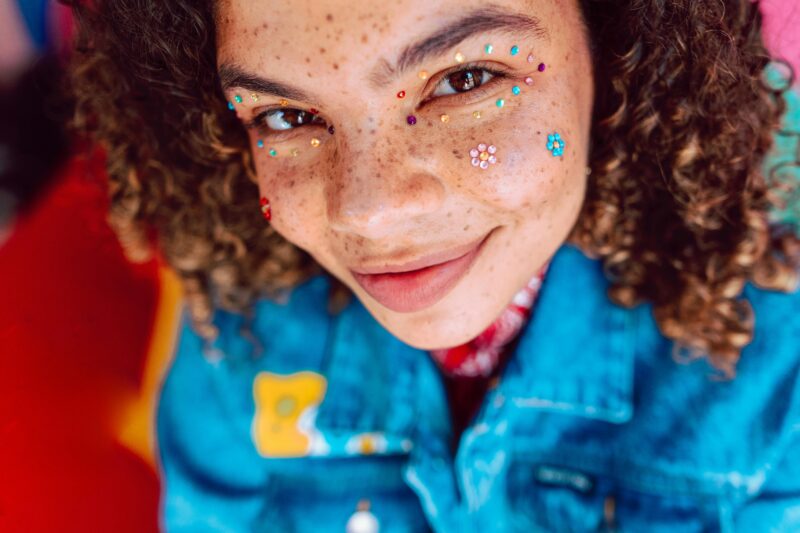For children and young people in care, identity or sense of self is complex and can bring up many feelings and emotions.
Foster carers play an important role in helping them explore their identity. Whether that’s helping them to understand their heritage or cultural background, traits and beliefs, personal characteristics, social status, relationships with others and the world around them, their sexual orientation, and more.
Helping young people discover who they are
Helping young people explore their identity is a journey that carers will be supported on. Carers can access assistance from our team and other carers. They’re able to gain information and resources on the best ways to work with foster children on their journey of self-exploration.
Types of identities and how to navigate them
Below, we’ll share some of the biggest topics, when it comes to identity and young people. We’ll also share the best ways to approach your foster child and help them to navigate and accept their unique differences.
Personal identity
Everyone has a personal identity – a sense of self that’s comprised of unique characteristics.

Carers can play an important role in helping children and young people establish their personality, values and beliefs, and interests. These are all important aspects that can contribute to the development of their personal identity.
While not the case for all young people in care, some young people may struggle with personal or self-identity issues. This can stem from insecurities they might have experienced around their sense of belonging, self-worth, and sometimes a sense of abandonment.
When helping children and young people to navigate their personal identity, it’s important to allow them to express themselves in whatever way they want. Carers can support them by being careful and considerate listeners. They must also be empathetic of their circumstances while acknowledging and celebrating the uniqueness of every child.
Cultural identity
When children are placed into foster or kinship care, they should try and maintain their connection to their cultural and familial roots. Especially First Nations children.
Anglicare and the Department of Child Safety (the Department) will always try to identify extended family (or kin) to care for them until reunification can be achieved. Kinship care is a great way for children to maintain their connection with their family, language, community, and cultural identity.
In instances where kin can’t be identified, foster carers are provided with resources and training to help them engage with their foster children in culturally appropriate and inclusive ways.
We believe that culturally engaged carers can play an important role in supporting a young person’s cultural identity. Therefore, at Anglicare, we work with them to encourage the use of language, art and culture within the home.
At Anglicare, we have Cultural Support Workers within our foster and kinship care team. They work with carers to help children explore their cultural identity. You can learn more about the importance of cultural identity for First Nations children in care, here.
Sexual and gender identity
When people become foster carers, they’ll need to be equipped to support children and young people exploring and expressing their sexual or gender identity.
Carers will be given resources, information and advice to help them have conversations with young people and encourage young people to feel safe and supported in expressing this aspect of their identity.

Regarding sexual and gender identity, carers should be open and available for young people to discuss their feelings. Carers can help educate themselves on LGBTQIA+ issues and topics.
Foster and kinship carers can be great allies for young people exploring their LGBTQIA+ identity. It’s important that they carefully listen to young people and respect their chosen names and pronouns, while also advocating for them and connecting them with community resources that can support them.
For more information on how you can be an LGBTQIA+ ally, click here to read IDAHOBIT’s tips on their website.
Spiritual or religious identity
Children in care may have, or be exploring, different spiritual or religious beliefs. It’s a carers responsibility to respect young people’s spiritual or religious identities.
This doesn’t mean that carers have to follow the same beliefs, but it’s important that they respect a young person’s right to practice or explore their own spiritual or religious identity.
Carers can connect with the Anglicare team to receive more information and support to help young people explore this aspect of their identity.
How to support young people to foster their sense of self
Children are vulnerable, particularly foster children. Unfortunately, for many, they’ll have experienced a form of trauma at some point in their lives. Therefore, it’s important for them to feel safe and secure as they explore their identity and develop their sense of self.
In addition to some of the points raised within this article, here are some other ways that foster carers can help positively explore or promote positive self-identity within children and young people.
- Celebrate and embrace their diversity
- Encourage them to express themselves authentically
- Promote positive body image and respect for their bodies
- Teach them about acceptance and inclusion of others
- Be positive role models
- Support their interests
- Be open to and explore new experiences with them
- Promote self-reflection
- Support them to be independent
- Offer words of encouragement.
More information and resources
If you’re in the process of becoming or are a foster carer – visit our resource library for more information about how to navigate life and challenges with a foster child. Alternatively, if you’d like to chat to our team or want to know more about becoming a carer, please call 1300 000 828.
